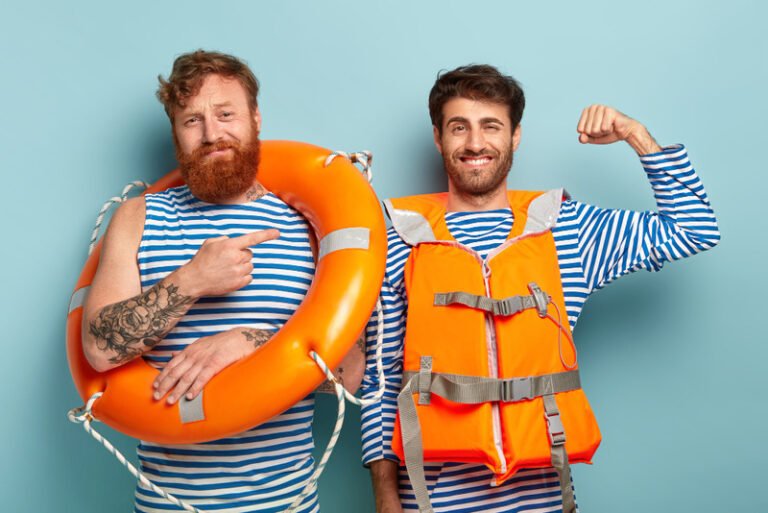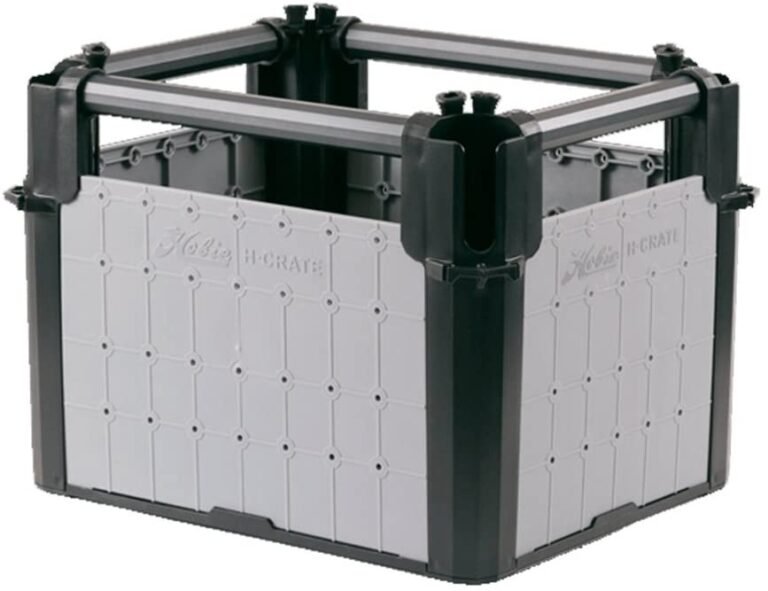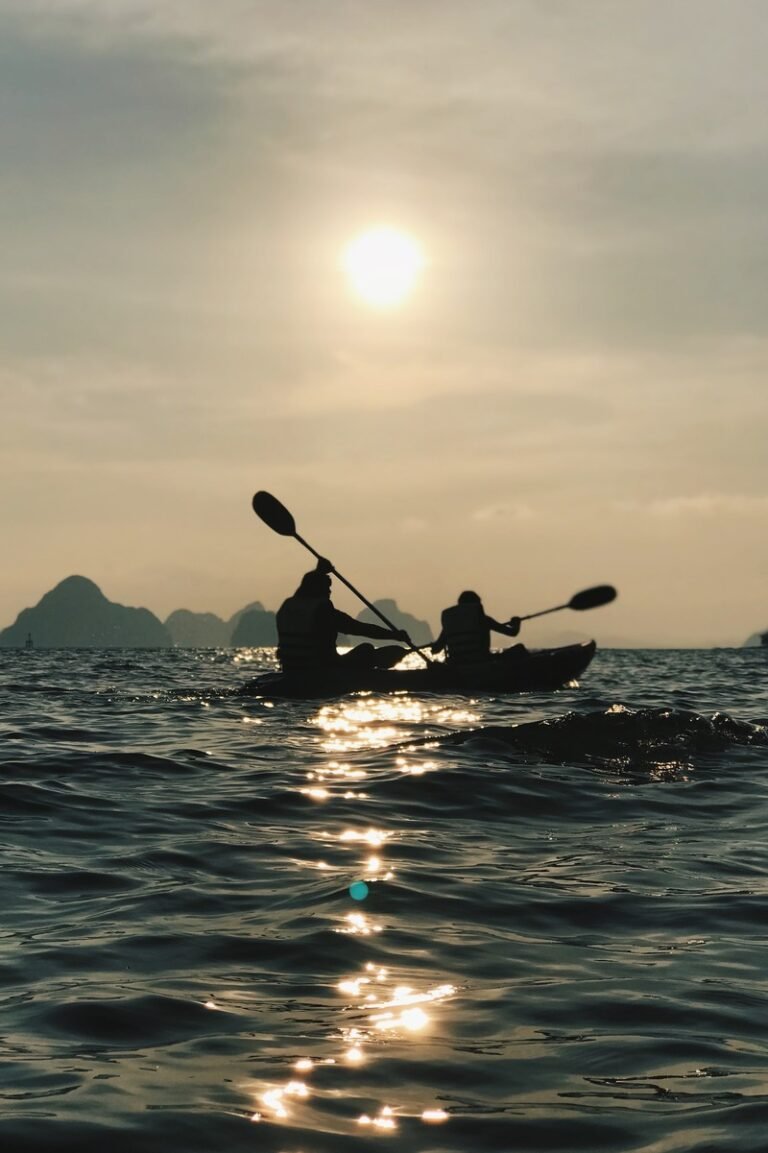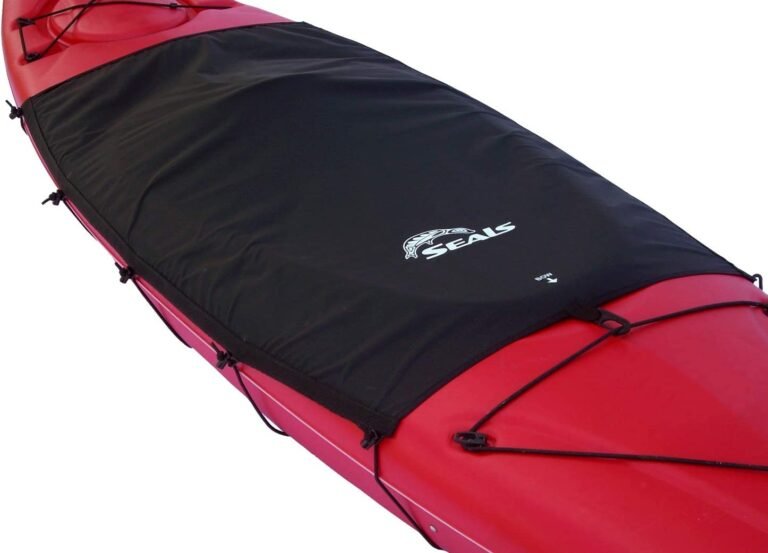Can You Get A DUI On A Kayak?
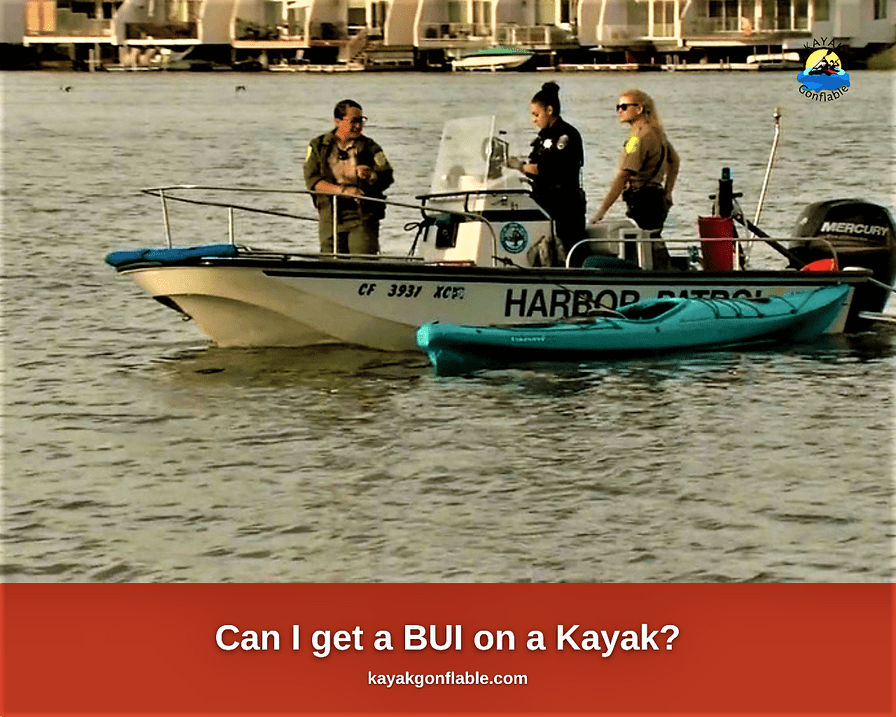
We can both agree that driving on the road with little alcohol in our veins, and much remaining in the bottle is a very dangerous, irresponsible, and illegitimate act.
You may be wondering, as a kayaker, if having a few bottles of beer or alcoholic wine is illegal, and if it can get you a BUI. Many kayakers never considered the question.
Kayaking “toys” are often regarded as “vehicles” on public waterways as motorized boats, therefore kayakers, like you, are subject to the same laws. To then answer the question of whether you can be charged for DUI or BUI? The answer is a resounding “yes”. Shocking, right?
I have always found people who engage in watersports and water-related recreations interesting but I was really surprised to learn that you can get a BUI while I was researching this article too.
However, kayakers enjoy varying freedom, depending on which country you’re in, and which state you’re in.
Boating Under Influence (BUI): Meaning and Similarities With DUI
Simply put, BUI means “Boating Under Influence” just like its counterpart, DUI, “Driving Under Influence”. As BUI applies to operators of water vessels, DUI applies to drivers of vehicles on land.
Although one might easily think that since DUI is often synonymous with “Drinking and Driving”, BUI should follow the same path- bearing “Drinking and Boating”. This is not so.
Alcohol is just a part of what BUI is all about. For instance, if you get a BUI in any state, it simply means you’re operating a water vessel under the influence of a substance that impairs you from effectually and safely navigating your vessel.
The substance may be any beer, alcoholic wine, vodka, marijuana, prescribed cough medicine, or any other sleep-inducing medicine. If law enforcement believes your judgment can be impaired, and that you may put your life or the lives of others in danger, you may be charged for BUI.
BUI and BWI: Differences
There is, technically, no difference between a BWI and BUI. Different states use distinct wording to explain the same act, that is, to show that operating water vessels with an impairing substance in the blood is illegal. BUI simply means Boating Under the Influence, while BWI means Boating While Intoxicated
What Does Law Enforcement Regard As A “Vessel”?
There are a lot of complications when interpreting BUI laws for the word ‘vessel’, since watersports and recreational water activities got attention in a short time, laws and regulations have barely kept up.
The implication of this is that law enforcement officers have to use their discretion on many occasions when they encounter a kayak operator who is probably under alcoholic influence.
Although some states exempt operators in manually powered or non-motorized kayaks from these laws, in most cases an officer may treat you as being under the influence if you drink in a kayak with a trolling motor, just as he would treat another with a fishing boat.
Dangers Associated With Kayaking Under The Influence
There are lots of inherent dangers in kayaking under the influence, aside from monetary fine, withdrawal of license and possible time in jail. You should keep in mind the need to always keep yourself, and everyone around you safe while kayaking.
Among the major contributing factors to accidents on the waterways, alcohol remains a key, with catastrophic consequences. That is why passengers in a kayak or any other watercraft are always advised to be in their PDF.
The dangers associated with not wearing outweigh any benefits. In some states, it is a must to wear a PDF every time you’re on a kayak.
Effect of Judgment Impairing Contents On Boating or Kayaking Operators and Passengers
The dangers stated above should be convincing enough, and if not, you might find the following:
Impaired Vision
Alcohol has the ability to inhibit impulses- interaction between your brain and your eyes. If you’re under the influence of alcohol, you’re likely to have blurry vision because alcohol decreases visual functions, and impairs your ability to differentiate between colors. Furthermore, you tend to find sleep quite easily than other people.
Poor Coordination and Control
Substances such as marijuana and alcohol can compromise motor actions (like maintaining balance) directly proceeding from your mental faculties. This gives room for mistakes that can accidentally capsize your kayak.
Slack Reaction Time
Your ability to safely operate your kayak on the waterways is highly dependent on the timing of your response to the occurrence. However, this ability can be seriously impaired by alcohol content in the whether low or high.
The fact that kayaking requires you to be one hundred percent at alert makes drinking while kayaking a dangerous combination.
Impaired Decision Making
While some substances like marijuana heighten your senses, some like alcohol lower your capacity to think and act, making you take irrational, dangerous decisions you wouldn’t naturally take, like kayaking into uncharted territory.
Risk of being Hypothermic
When you take alcohol in excess, it makes you feel warm on the inside. It can also make you lose a lot of heat when you’re involved in rigorous activities like kayaking. Furthermore, it lowers the natural shivering response of your body, conversely increasing the risk of being hypothermic if you mistakenly overturn into water.
Risk Of Drowning
Alcohol is indeed often an unfortunate part of watersports, which, in addition to the dangers above, enacts it as a big risk factor, especially in drowning deaths involving adults.
Statistics show that there are measures of alcohol in about 30 to 70 percent of all drowning casualties. What a sobering fact from the dangerous combination!
Laws on BUI
The level of fatalities that come from boating accidents is high. Therefore to bring about a reduction to it, many countries have set up laws and regulations regarding BUI.
Below are laws, considerations and exceptions for Kayakers in countries like the USA, Canada, the UK, Australia, and New Zealand.
Kayak DUI Laws USA
Kayaks, non-motorized vessels, are not always under the control of the US boating laws. But, United States law holds boating while under the influence of alcohol as a federal crime, including all vessels- motorized or non-motorized.
In all the 50 states in the United States, BUI is considered a criminal act and is subject to the US Coast Guard’s federal law, which comes with stern punishments for all violators.
Except in Wyoming and North Dakota where the legitimate blood alcohol concentration limit is 0.1%, all other states- 48- have a limit of 0.08%.
USA BUI punishments
The United States’ punishments for BUI vary in sternness. As each state has its own BUI laws, punishments are determined by several factors.
Generally, if you’re found guilty of boating under the influence of alcohol or anything that impairs your judgment, for the first time, the punishment is a fine between $200 and $1000 and about 1 to 3 months in jail.
If you’re found guilty of a second offense, you’ll be fined more, about $500 to $2000, and a jail time of six months to over one year. The first and second offenses are always considered less serious than a felony.
However, if you’re convicted repeatedly for BUI, you’d be subjected to pay a fine between $1000 and $3000. You might likely face jail time between 3 months and 2 years.
Some states may increase your fine and time in jail if you’re found BUI with minors on board. And can raise your offense to felony BUI. You may have your boating license withdrawn for a short time in that state or life.
Checking what your state’s law says on BUI matters but relative consideration shows kayaking while under the influence is illegal too.
Kayak DUI Laws Canada
Canada enacts strong penalties for Boating injuries. The reason for this is that 65% of all boating injuries are caused by drinking alcohol while boating.
Therefore, the Criminal Code of Canada declares anyone operating a boat under the impairment of alcohol or drugs a criminal. In addition, Canada regards anyone with a BAC of 0.08% and above as “under the influence”, and is likely to be subject to penalties.
Canadian BUI punishments
If you’re found guilty of “being under the influence” of drugs or alcohol in Canada, you will be subjected to a minimum penalty of $600 as a first offense.
In the case of a second offense, the penalty is a minimum of $600 plus at least a jail time of 14 days.
If you’re found convicted for BUI on ‘Repeat Offense’, the penalty is a minimum of $600 plus at least a jail time of 3 months.
In Canada, all these laws and punishments do not only apply to the boat operator or kayaker. As a passenger on a boat, you can only take alcoholic drinks if the boat has permanently reserved toilet, cooking, and sleeping facilities. It must also be secured near a piece.
It must, however, be noted that there are provincial differences in Canadian boating laws.
Kayak DUI Laws UK
The UK doesn’t particularly have strict rules for kayak operators. It is not illegal. This is due to the concessions granted to people who boat as recreation. The law holds for vessels more than 23ft in length and faster than 7 knots in speed.
However, you must not be found operating a kayak while impaired as a result of alcohol consumption. Violation attracts prosecution, as you can easily put your life or the lives of others in danger.
The UK Merchant Shipping Act of 1995 states:
“Boaters may be prosecuted under the Merchant Shipping Act 1995 if their actions on the water are seen to be endangering other vessels, structures or individuals and they are under the influence of alcohol.”
Kayak DUI Laws Australia
Australian laws ban operating any water vessel while under the influence of alcohol. Although Australia does not tag these laws as “BUI” laws, they strictly prohibit boating while drunk and even have a lower BAC limit than other countries. If you’re discovered with BAC above this limit, you will be prosecuted.
For instance, in Queensland, Australia, the Maritime Safety Queensland under the Queensland Government have their law state:
“For skippers of recreational boats, the (BAL) limit is under 0.05 even when your boat is at anchor unless the boat is securely moored in a marina, to a jetty or wharf or on a swing mooring.” As a kayaker, you also are subject to this law and you’re expected to obey it.
Kayak DUI Laws New Zealand
Federal Law in New Zealand prohibits operating any vessel that runs on the water while drinking. A kayak, being a non-motorized vehicle, is regarded as a vessel, and is subject to the same law.
The Skipper Responsibilities- Maritime New Zealand states:
“You can be prosecuted for operating a boat in a manner that causes unnecessary danger, under section 65 of the Maritime Transport Act.”
If You’re stopped by law enforcement for BUI?
The truth about people that everyone, including law enforcement, knows is that everyone can’t be stopped from drinking and kayaking. We all are humans.
If you’re confronted by law enforcement for kayaking under the influence of alcohol, all you need is to show good manners. Being cooperative can go a long way to determine the officer’s judgment in dealing with the situation.
Why The Need For Serious Regulations On Kayaks?
When education and law enforcement about drinking while on boating trips were just coming to light, watersports, especially kayaking became very popular.
The purpose of education and law enforcement was to help reduce accidents and deaths in boating.
Although this has been fruitful and kayaking accidents have steadily decreased, death rates are increasing.
In conclusion, kayaks are smaller compared to other motorized vessels, and less negotiable too. These features do not make getting into sudden trouble easy. These and many other reasons are why law enforcement clamps down on people who BUI.
How To Prevent A DUI While Kayaking
You must by now have questions on how to avoid the unpleasantness that comes with BUI. You love to have a good feeling while kayaking but you also want to avoid unnecessary fines, or total withdrawal of your kayaking license, and, ultimately, jail time.
In essence, if you take a bottle of beer or any alcoholic drink while on a trip, ensure that you take enough time off kayaking. It is preferable that you stay off alcohol while kayaking and then come back to it when you’re off for the day.
Finally, since water accidents are usually fatal and using marine vessels demands that you’re mentally present, one hundred percent, the best decision you can make is to stay off alcoholic drinks completely. The decision will ensure that your judgment is intact, not impeded, in case of an unexpected occurrence.
Conclusion
You’ve found:
- The dangers associated with operating a kayak with alcohol flowing in your veins
- Several countries consider being drunk while boating a severe offense just as drinking while driving on the road
- That there’s a high probability of being convicted for BUI anywhere.
Go ahead and enjoy your kayaking! Make sure to stay away from alcoholic drinks before entering the water. Unlike roads, water is unpredictable way, so be sure to keep yourself in control.
Although it wouldn’t always come easy, maintaining your position by saying “no” to drinking or smoking before kayaking can help save a person’s life or yours.

